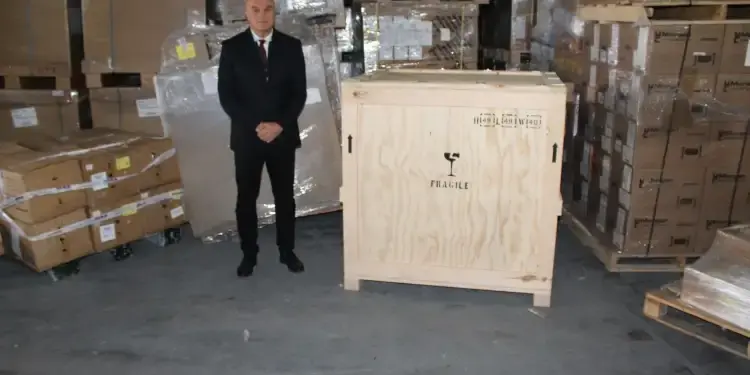As part of its national census and monitoring program of archaeological and ethnographic documents preserved in its museums, deposits or temporarily sent abroad, the Tunisian National Institute of Heritage (INP) announced on Monday the return of 11,795 archaeological pieces from the University of Georgia, in the United States.
According to Tarak Belkhouche, Director General of the INP, who spoke to the Tunis Africa Press agency (TAP), these objects, dating from the Roman era, had been sent in 1990 in the context of scientific research projects, but had never been returned to Tunisia.
The picked lot includes 3,460 bronze coins, 2,715 ivory objects (including female jewelry and everyday life utensils), 2,825 glass objects, as well as a set of ceramic and metal parts.
This restitution is the fruit of a year of intensive exchanges between the INP and the American university, supported by diplomatic work carried out by the Ministry of Foreign Affairs. The Tunisia ambassador in Washington notably played a decisive role in obtaining the necessary authorizations from the American authorities. Tunisian customs has also facilitated administrative procedures, essential for the return of these parts out of the national territory for several decades.
Also according to the Director of the INP, a new restitution is scheduled for Friday April 25, with the repatriation of 3,852 Roman currency in bronze held so far by the Randolph College, also located in the United States.
The National Heritage Institute reaffirms its determination to continue its efforts to repatriate all the archaeological objects exported temporarily within the framework of scientific partnerships, and which have not been returned within the time limits. A crucial mission to preserve and enhance the Tunisian heritage.
Update :
On Thursday, April 24, 2025, the Ministry of Cultural Affairs announced the repatriation of 3,852 ancient currency dating from the Roman era and the end of antiquity. These precious pieces, discovered between 1990 and 1993 during excavations by an American archaeological mission in Bir Knisia, on the Carthage site, had been temporarily transferred to the United States for cleaning, catering and study.








